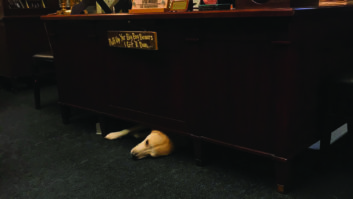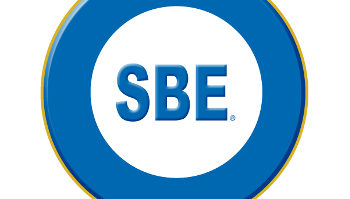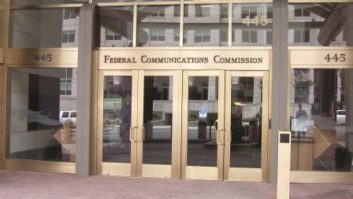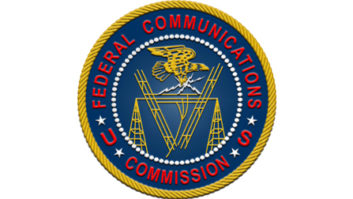
How much does pirate radio help the American economy?
Say what?
Matthew Lasar of the website Radio Survivor has done some musing on the economic stimulus effect of illegal broadcasting, all the while giving NAB a dig in the ribs.
The NAB recently commissioned a study to try to figure out how many jobs — and even how much of the U.S. gross domestic product — can be attributed to local commercial radio and TV. It sought to dramatize broadcasting’s role at a time when regulators have been debating spectrum policies.
The report by Woods & Poole Economics with research firm BIA/Kelsey found that $1.17 trillion — that’s 7 percent — of the country’s annual GDP “originates” in local commercial broadcast radio and television, and that 2.52 million jobs are attributable to the industry each year.
Those are some whomping big numbers. Radio, the study found, directly employs 118,000 people and contributes $18 billion to GDP, while TV has 187,000 people and accounts for $30 billion. But the study also included “ripple effects” of broadcast employment through consumption, and it looked at economic activity generated by local commercial broadcasting as a forum for advertising goods and services.
Guesstimate
Reacting to NAB’s study, Lasar did his own back-of-the-napkin calculations and wrote about it. He thinks illegal radio stations in the United States annually generate 19,220 jobs, worth $576.6 million to American workers. “That’s more than a half a billion dollar yearly boost to the U.S. economy.”
He frames his discussion in serious terms, though it’s easy to imagine a tongue planted in a cheek. He started by noting that Wikipedia lists 45 pirate stations. “After years of following the unlicensed station phenomenon, my sense is that these lists should always be multiplied by a factor of 10, given the frequency with which pirate stations clandestinely launch.”
Further, though pirate stations usually “run on volunteer power,” he says some unlicensed stations “run income-generating community events and sometimes air commercials. Thus these stations employ paid deejays, managers, event managers, food service workers, entertainers and engineers. Thus I estimate that on average, your pirate radio station employs eight people in full- or part-time positions. That’s 3,600 direct jobs.”
Lasar goes on to discuss the impact when pirate stations and staff buy gear, use electricity, take public transportation, hire lawyers to fight fines and so forth, and he assigns “job creation” totals to all that. Then he talks about “jobs that are stimulated by the music and public affairs activities of pirate radio stations,” like musicians, restaurants and (yes) FCC enforcement, to come up with his 19,000+ jobs and half-billion-dollar total.
“I think that this is a conservative guesstimate of the job value that pirate radio stations bring to the U.S. economy,” Lasar said.

Arcane Canticle/Flickr
“If you think that my methodology is off, fine. But this logic isn’t terribly different from that used in your typical trade association-commissioned industry job estimate study. The biggest difference is that I did this one in about an hour and received no consulting fee for my work. You’re welcome.”
Respect the community
The Radio Survivor website professes to love radio “in all its forms” and is up front about including illegal radio in that. Lasar has written that the site advocates for “participatory” radio, defining this as “community, public, college, low-power FM, Internet, satellite, public, mobile and pirate.”
While NAB did well to point out the economic benefits of commercial broadcasting, I chuckled at Lasar’s poke of NAB’s huge, speculative “ripple effect” numbers. It’s reasonable at least to approach such large numbers with caution.
But Lasar would have done better to discuss the economic value of other legal forms of radio rather than that of pirates.
I do not endorse illegal radio, and neither should you.
I support — and RW writes about — community, low-power, high school, online, “micropower” and many other forms of radio, even TIS and radio reading services — if they comply with the law.
I’ve worked in commercial radio but I’m also a former board member of a block-formatted, eclectic college radio station, and I tend personally to sympathize with people who want to bring more diverse, nontraditional voices to the broadcast spectrum — if they comply with the law.
RW covers pirate radio news and has published opinions of its supporters (generating criticism for doing so) because I believe that perspective needs to be considered. But that doesn’t mean I concur with their methods.
I was an early backer of “responsibly deployed” LPFM (and took heat for that too); but where some find a natural affinity between low-power FM and pirates, I draw a distinct line. An LPFM station has shown that it respects the larger community in which it operates: its local town, its country’s elected officials, its listeners and its fellow broadcasters. A pirate has not.
Some see pirate radio as a form of civil disobedience and convince themselves they’re “sticking it to the corporate fat cats” by flipping that transmitter switch.
But doing so ultimately is a selfish act. It says, “I know better than the larger community, including those who create our laws, how best to use this resource.” And among those who suffer are the smallest broadcasters who put great toil and money into creating broadcast outlets while playing by the rules.
We have a radio community in this country, and while it includes corporations like Clear Channel and CBS (favorite bashing targets for some), it also includes tiny college stations, struggling mom-and-pop AMs, TIS, radio reading services, new LPFMs and others who also honor — and understand the need for — a system of licensing and spectrum management.
If you want to “participate” in this community, respect its rules. If you don’t like that system, work to change it, just as LPFM advocates have done.
Meanwhile, commenting on the original study, NAB President/CEO Gordon Smith stated local broadcasting “is a remarkable engine for commerce and economic growth, creating high-paying jobs and helping business drive sales through advertising of goods and services.”
You might dispute NAB’s numbers but he’s right in his conclusion. And Radio Survivor’s humorous comments about pirate radio inadvertently remind us that the larger community of law-abiding, “participatory” radio outlets generates economic benefits too.











